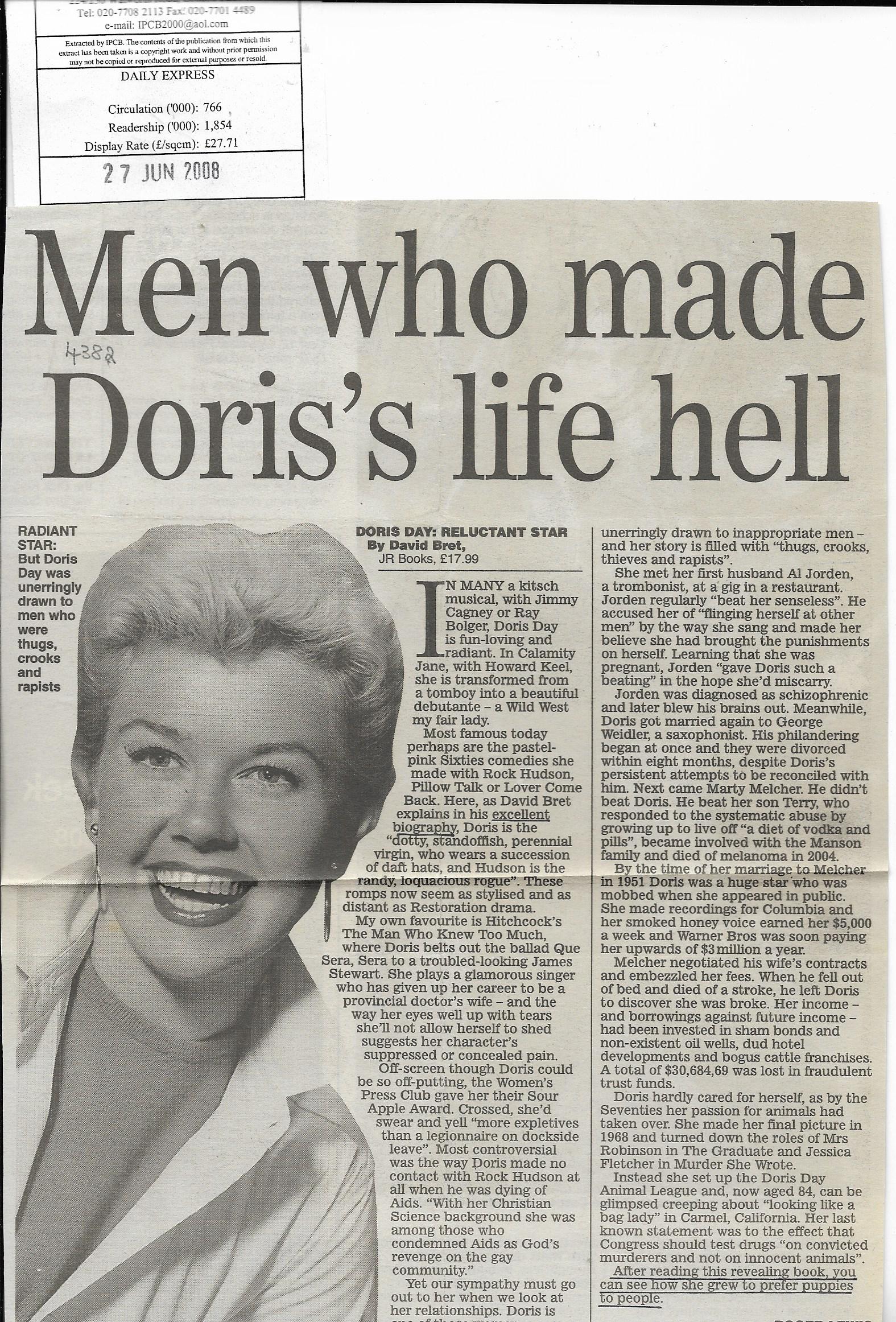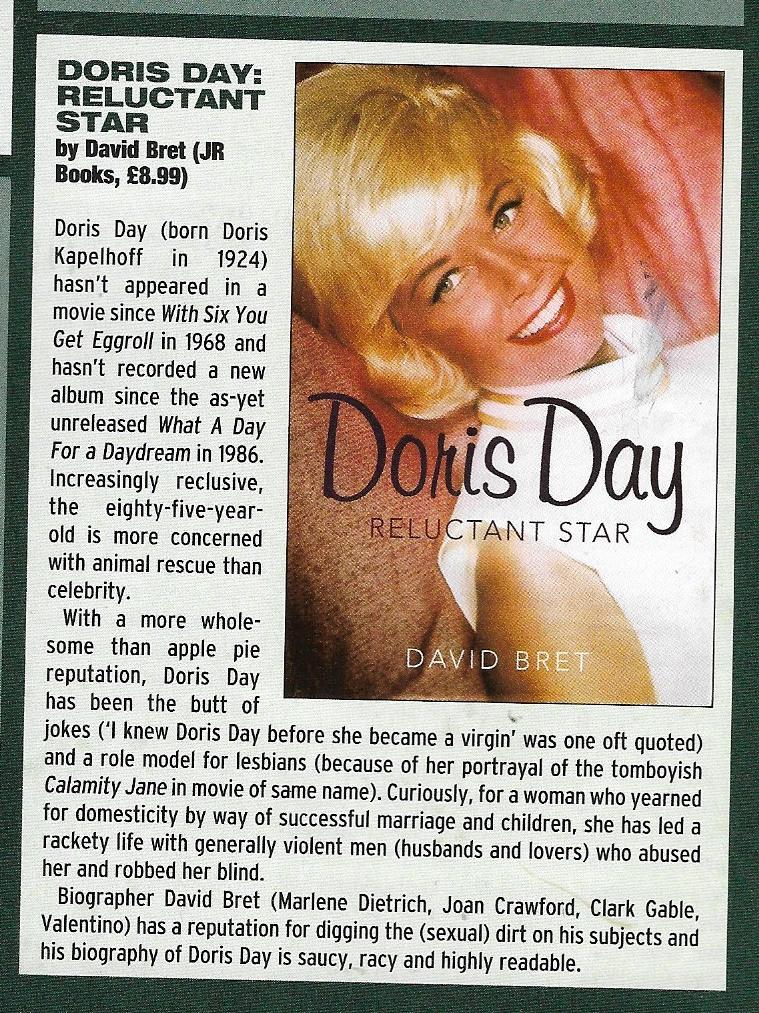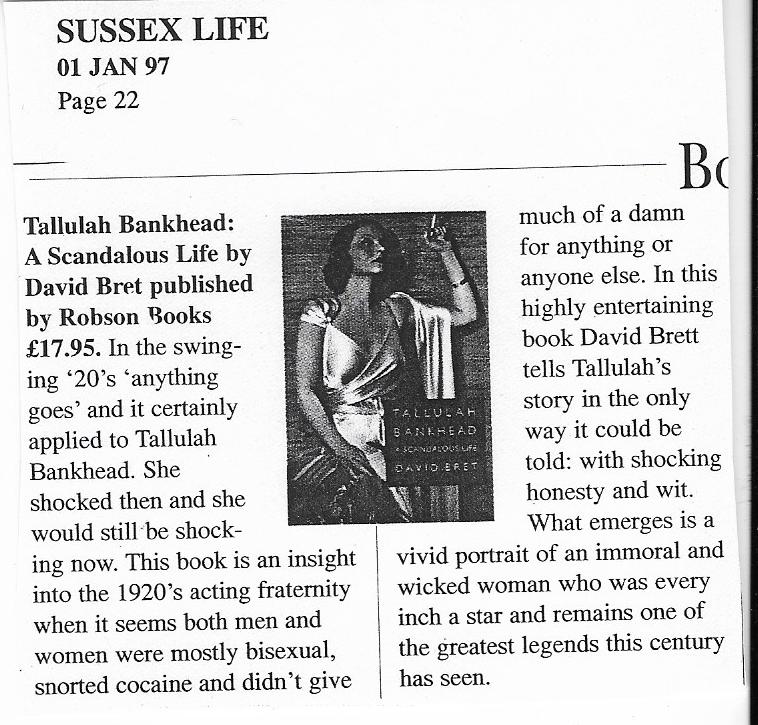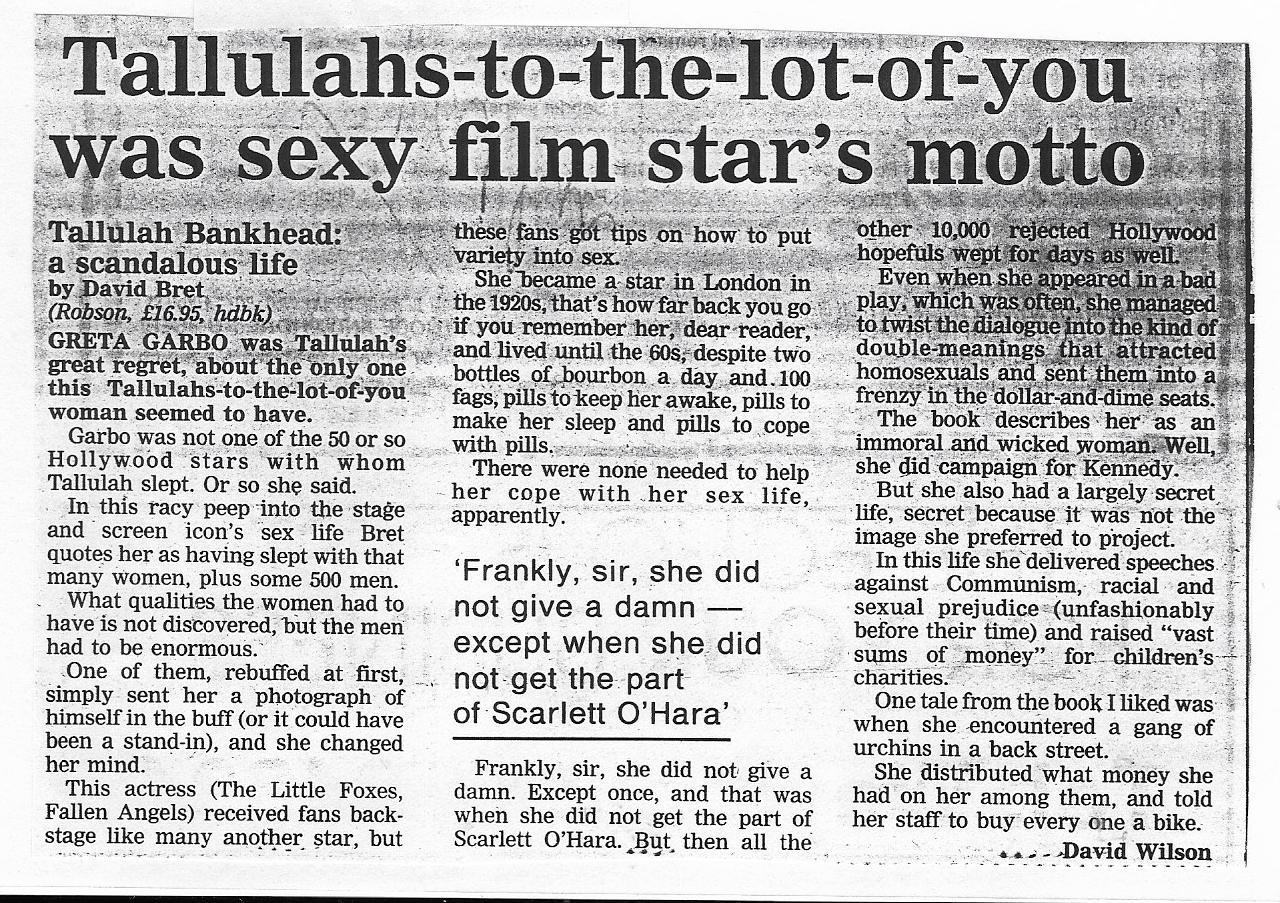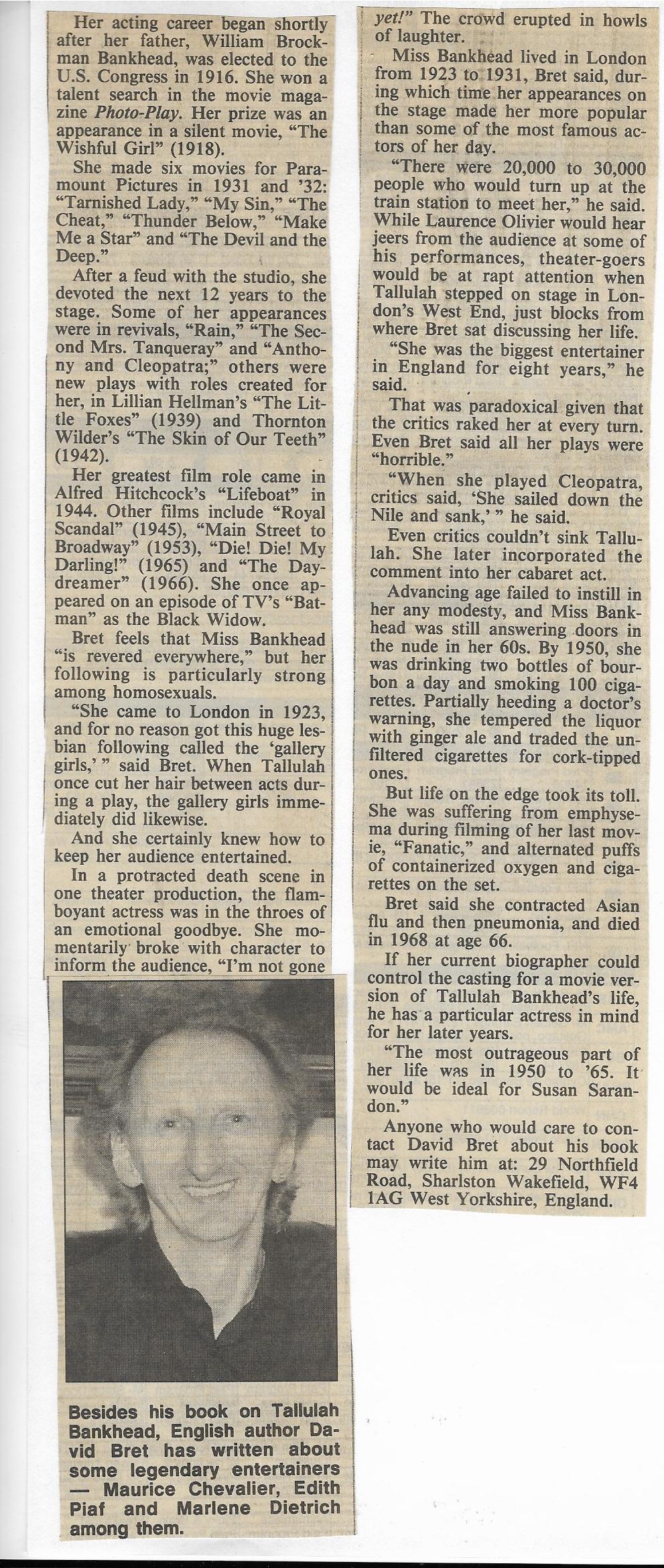Doris Day: Reluctant Star
Sunday, 11 December 2022
Doris Day
Saturday, 10 December 2022
British Divas of the 1960s: Volume One: Dusty Springfield ~ Cilla Black ~ Helen Shapiro ~ Kathy Kirby
British Divas of the 1960s: Dusty Springfield ~ Cilla Black ~ Helen Shapiro ~ Kathy Kirby
DUSTY SPRINGFIELD: The creator of the unique style known as 'blue-eyed soul', she was instrumental in introducing Motown to Britain, and for several years reigned supreme on both sides of the Atlantic. Her voice, flute-like, sensual and smoky frequently in the space of the same song, was similarly unique. She remains a show business legend years after her death, yet also an enigma, a completely self-fabricated, difficult yet vulnerable woman who allowed few access to her complex, in turns exhuberant and neurotic world where at times there was little difference between reality and make-believe. CILLA BLACK: The only important British female singer to emerge from the 'Mersey Sound' explosion. The archetypal girl-next-door, her speciality was powerhouse Continental ballads, with which she was unrivalled. Her sudden death in August 2015 sent an entire country into profound mourning. HELEN SHAPIRO: The teenage sensation whose commercial career ended as the other Brit Girls were coming into their own, though she went on to fashion a successful career in jazz. KATHY KIRBY: Britain's glamorous answer to Marilyn Monroe, a phenomenally talented, technically and vocally perfect but tetchy individual for whom there was no such thing as a bed take. Contains full UK and European 60s vinyl discographiesBarbara...chanteuse française (édition française)
Ils ont fait connaissance grâce à Charles Aznavour: BARBARA, la plus grande chanteuse française de sa génération…et David Bret, le biographe international, confident de Marlene Dietrich et de la chanteuse britannique Dorothy Squires.
Après un échange de lettres et d'appels téléphoniques, ils se sont finalement rencontrés, initiant une amitié étroite qui a duré plus de vingt ans, jusqu'à ce triste jour de novembre 1997.
Barbara a appelé David Bret «petit frère» et «mon confident de minuit». Ils parlaient de tout: l'amour et les amants, la vie, la mort, le music-hall et les premiers pas hésitants de Barbara vers la gloire éternelle. Ils ont partagé des histoires sur leurs goûts et leurs aversions. Ils se sont confiés au sujet de leur jeunesse trouble—leurs pères violents et leurs mères qui souffrent depuis longtemps. Ils riaient ensemble, pleuraient ensemble et appréciaient le sens de l'humour sec de l'autre. Ils ont parlé du Sida, de ceux qu'ils ont perdus à cause de cette terrible maladie.
Barbara a révélé les histoires vraies derrière certaines de ses chansons les plus célèbres. De plus, ils ont parlé des chansons que Barbara a demandé à Bret d'adapter en anglais et de la chanson originale sur leur ennemi commun—l'homophobie—que Barbara a enregistrée, mais n'a pas vécu pour chanter sur scène.
Publié pour commémorer la vingt-cinquième année de son décès, Barbara et moi est l'hommage ultime non seulement à une grande chanteuse, mais à un être humain incroyable, que nous ne reverrons jamais.
David Bret et Barbara: Collectif Marcel Mouloudji 19 novembre 2022
Barbara: "Mouloudji était un ange, mais sa femme était une femme difficile! Mon tout premier enregistrement était une chanson de Mouloudji…"
David Bret: Mon pot le gitan de Marc Heyral, a été un 78 tours produite au printemps 1955. Sur face B il y avait L’oeillet rouge, écrite par Brigitte Sabouraud—la directrice de L’Écluse. Tandis que Madame Mouloudji, elle était une fois l'agent de son mari, et l'agent de ma marraine, Jacqueline Danno. J'ai demandé à Charley Marouani ce que Barbara avait voulu dire en l'appelant une femme difficile. Il expliqua:
Lola était chaleureuse et amicale envers son mari, chaleureuse envers les autres artistes. Tous le monde du spectacle l’adorait. Elle était difficile avec les théâtres et leurs directeurs, et pour cause. Elle était une femme dans un monde essentiellement masculin, et elle s’est battue plus forte pour obtenir les meilleures offres pour ses artistes. Mais elle a toujours exigé trop d'argent pour Mouloudji! Je lui disais: «Ce que tu demandes, c’est ce que quelqu'un demanderait pour les Beatles! Personne ne paiera jamais ce que tu demandes!»
David Bret: Quelque chose m'a amusé, concernant Mouloudji. En novembre 1979, nous avons eu la chance de rencontrer, brièvement, le président Valéry Giscard d'Estaing après le dépôt des gerbes à l'Arc de Triomphe, et j'ai ensuite demandé à Barbara pourquoi, en France, on voyait ce jour-là des gens portant des bleuets sur leurs revers.
Barbara: La tradition a commencé après la Première Guerre mondiale. Les bluets était le surnom donné aux nouvelles recrues par les anciens soldats en raison de la couleur de leurs uniformes. Mais tu n'as pas ça en Angleterre, tu portes plutôt des mouloudjis.
Par «mouloudjis», elle faisait référence aux coquelicots, et à
Tallulah Bankhead
Tallulah Bankhead: A Scandalous Life
Marlene Dietrich called her 'The most immoral woman who ever lived'. Cecil Beaton described her as 'a wicked archangel', No one better summed up this fascinating woman than Tallulah herself, in an endless succession of anecdotes and one-liners, peppered with the expletives that became her trademark.
Born in Alabama in 1903, she became a big star in London in the early 1920s. Branded an 'unsafe and unsavoury person' by the Hays Commission in America in the early 1930s, her career went from tremendous stage success in such hits as The Little Foxes and Fallen Angels, to appearances in some of the worst plays ever written, which she turned into triumphs by improvising lewd and outrageous asides to satisfy the cravings of her largely gay audiences.
Confessing to over 500 love affairs with both men and women, Tallulah married just once - to a man who divorced her citing mental cruelty. A headline writer's dream throughout her life, at the height of her fame she was said to drink two bottles of bourbon a day, smoke 100 cigarettes and take pills to help her sleep, pills to keep her awake, and pills to help her cope with the pills.But while there always seemed to be someone on hand to record Tallulah's indiscretions, the other side of her personality went largely unrecorded. She raised vast amounts of money for children's charities, delivered stringent speeches against communism and racial and sexual prejudice, and actively supported the presidential campaigns of two close friends: Truman and Kennedy.
In this highly entertaining book David Bret tells Tallulah's story the only way it could be told: with shocking honesty and wit, What emerges is a vivid portrait of an immoral and wicked woman who was every inch a star, and who remains an enduring legend of the 20th century.
July 2022
Disney actually took inspiration from real people for many characters, including the wicked villain in 101 Dalmatians -- Cruella de Vil.
Several people inspired the creation of Cruella. According to Entertainment Weekly, actor Mary Wickes served as the live-action model for Cruella. But the Hollywood actor who left the biggest mark on the development of Cruella was Tallulah Bankhead. Bankhead was extremely thin and smoked around 120 cigarettes per day, both traits Cruella also possessed. Bankhead even had the notorious arched brows similar to the Disney villain's.
The comparisons between Bankhead and Cruella didn't just stop at their appearance and financial status. According to David Bret's 2017 biography Tallulah Bankhead, Bret believed Bankhead suffered from manic narcissism throughout her life. Bankhead was even banished to convents, but the nuns expelled her twice.: once for throwing ink at the Mother Superior and another time for her flirtatious attitude. Likewise, The Hundred and One Dalmatians revealed Cruella was expelled when she was caught drinking ink



